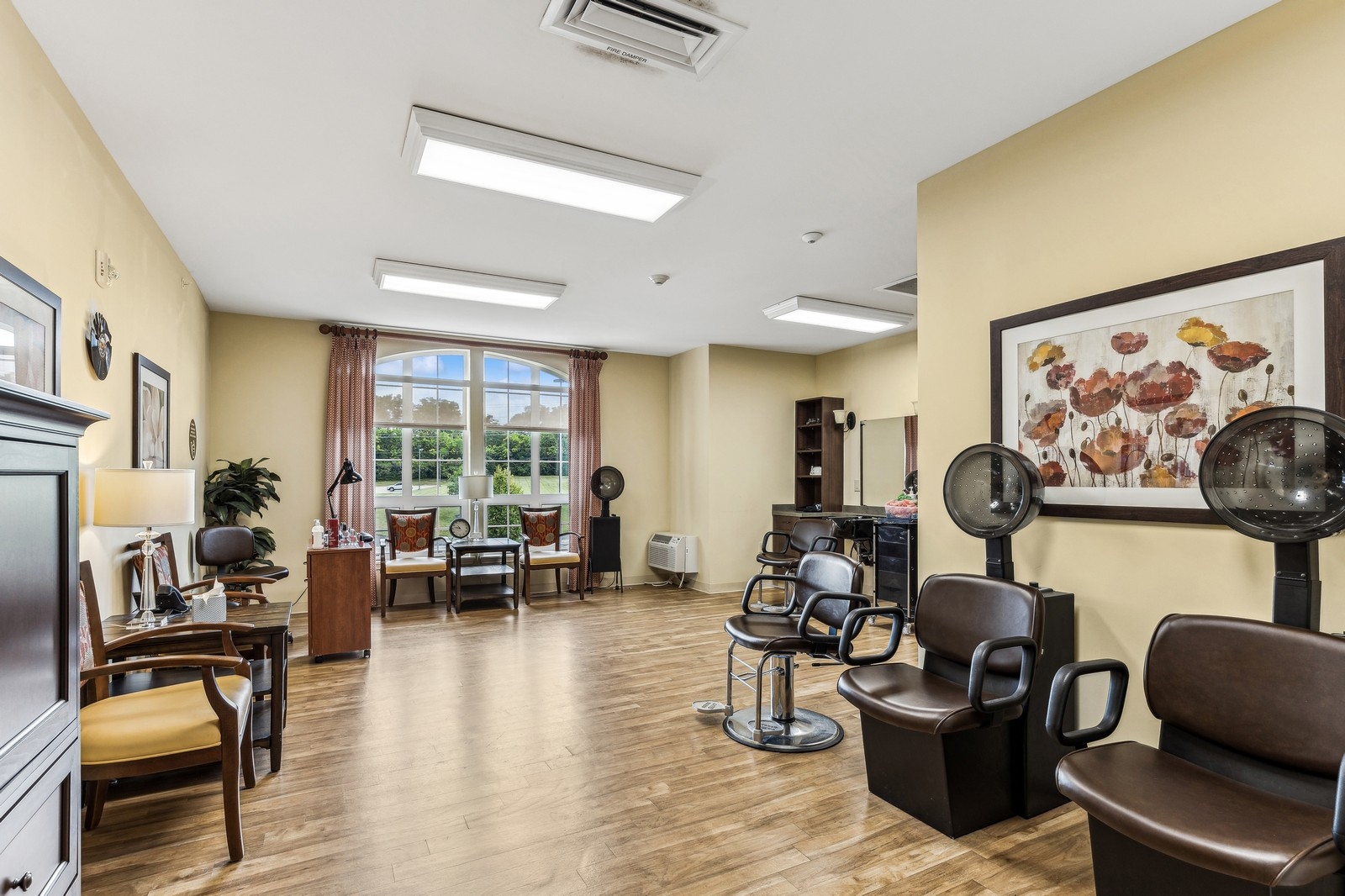There comes a time when the needs of our loved ones exceed the support we can provide at home. This is particularly true for seniors experiencing memory-related challenges such as Alzheimer’s or dementia. A few signs that it’s time to consider memory care include:
- Behavioral changes
- Worsening cognitive decline
- Changes in physical health and ability
Understanding when it’s time to consider memory care can make all the difference in preserving your loved one’s dignity and ensuring they receive the specialized attention they deserve. In addition to the signs that it’s time to look at memory care options, we’ve also included some actionable tips on choosing the right community for your loved one.
Recognizing the Signs It’s Time for Memory Care
Identifying when it’s time to move a loved one into memory care isn’t always easy. But recognizing specific signs can help you make an informed decision prioritizing their well-being.
Behavioral Signs
Sudden changes in behavior can signal the need for memory care. If your loved one exhibits increased agitation, aggression, or anxiety, it could be time to consider professional support. These behaviors may stem from confusion and frustration related to memory loss, and memory care communities are equipped to manage them effectively. Additionally, if there are instances of wandering or getting lost, even in familiar places, it may be time to seek specialized care.
Cognitive Signs
Cognitive decline often manifests as difficulty with problem-solving, decision-making, or completing everyday tasks. If your loved one struggles with remembering appointments or frequently forgets important information, a memory care community can provide the structured environment they need.
Physical Signs
Physical health can also signal the need for memory care. Noticeable weight loss, poor hygiene, or unexplained injuries could point to neglect or an inability to manage personal care. Trained staff in memory care communities can assist with daily living activities and ensure residents’ physical needs are met.
The Benefits of Memory Care for Your Loved One
Memory care is a specialized form of senior living designed to accommodate individuals experiencing memory loss and cognitive decline. Unlike assisted living or independent living, memory care communities focus on creating a safe, structured environment tailored to the unique needs of residents with memory impairments.
Safety & Security
One of the primary benefits of memory care is the emphasis on safety and security. Memory care communities often feature secured environments designed to prevent wandering and ensure residents’ safety. This peace of mind allows families to rest easy, knowing their loved one is in a protected space.
Tailored Care & Programs
Memory care communities incorporate specialized programs and activities that promote cognitive stimulation. Engaging residents in meaningful activities enhances their emotional well-being and helps preserve cognitive function. These programs often include art therapy, music therapy, and reminiscence sessions, all contributing to a fulfilling quality of life.

Social Connection
The social aspect of memory care cannot be understated. Living in a community with peers facing similar challenges fosters a sense of camaraderie and belonging. This supportive environment encourages social interaction and reduces the feelings of isolation that can accompany memory-related conditions.
Choosing the Right Memory Care Community
Selecting the ideal memory care community for your loved one requires careful consideration of several factors.
Location & Accessibility
Proximity to family members is essential when choosing a memory care community. Being close allows for frequent visits and involvement in your loved one’s care. Additionally, consider the community’s accessibility, ensuring it accommodates mobility needs your loved one may have or develop.
Staff Expertise & Training
The quality of care largely depends on the staff’s expertise and training. Look for communities that employ compassionate caregivers with specialized training in memory care. This ensures that your loved one receives personalized attention and support tailored to their unique needs.
Personalized Care Plans
A reputable memory care community should offer individualized care plans that address each resident’s specific requirements. These plans should encompass medical care, assistance with daily activities, and cognitive engagement programs. Inquire about how frequently these plans are reviewed and updated to accommodate changing needs.
Community Atmosphere
The atmosphere of a memory care community plays a significant role in your loved one’s overall experience. Visit potential communities to observe the interactions between staff and residents. A warm, welcoming environment can greatly enhance your loved one’s sense of belonging and happiness.
Finding Peace in Memory Care Decisions
Deciding to transition a loved one into memory care is undoubtedly challenging, but it can also be an empowering choice that prioritizes their well-being. By recognizing the signs that indicate the need for specialized care, understanding the benefits of memory care, and carefully selecting the right community, you can ensure your loved one receives the support they deserve.
Remember, you are not alone in this journey. Reach out to our team at the Enclave of Springboro to book a community tour. Together, we can create a plan that celebrates your loved one’s life and independence while addressing their changing needs.











